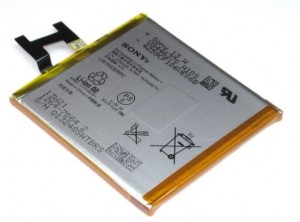
Here is a bit of curious news coming out of Japan. Kana Inagaki writing for Financial Times:
Sony has agreed to sell its lossmaking battery business to Apple supplier Murata Manufacturing in a deal that could create a new player in the growing market to power electric vehicles.
For those unfamiliar with Murata, they are the world’s biggest supplier of batteries which are found in Apple and Samsung smartphones. From there, the company is hoping to expand their reach into healthcare, the energy sector, and perhaps most importantly, cars.
Murata said it eventually wants to use Sony’s battery technology, now mainly used for smartphones and power stations, in the automotive space, to charge electric cars. This could position it as a rival to Panasonic, which makes batteries for Tesla’s electric vehicles.
For Sony, one of their biggest profit drivers over the past few years has been their semiconductor business. Batteries equally fit into that formula – an invisible business to most consumers that can be quite lucrative. As an example, Samsung makes a big chunk of their revenue from their flash memory and chip business which also powers rival iPhone.
With more devices coming online over the next decade like drones, robotics (Sony is bringing AIBO back), and electric cars, it seems like a curious time for Sony to exit the battery business. However, it seems like Sony has run into a dead end with that division and is unable to make it profitable.
its battery business has been mostly lossmaking since 2010, leading to a writedown of nearly $600m in the past three years.
Kaz has made it clear that if they feel a division is unprofitable, he’s not afraid of shuttering it. Luckily, this won’t result in a massive loss of jobs.
Under the sale terms, 8,500 of Sony’s employees will transfer to Murata, although the deal excludes certain of Sony’s consumer products such as alkaline and USB batteries
Sony has since explored rebuilding the business on its own, but that would have required heavy investment at a time when Mr. Hirai has tried to focus Sony’s resources in image sensors, PlayStation games and entertainment assets.
With the growth Sony has experienced with PlayStation and the extremely long term prospects they’d be betting on with their battery division, for a company that’s been short on cash, the decision makes sense. The selling price of the division is thus far undisclosed but a sign of the new discipline Sony has instated under Kaz.
Discuss:
Do you think Sony should have continued to hold on to their battery business or was it the right decision to sell it?

You must be logged in to post a comment.